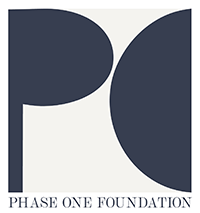Our Featured Research Page lists cancer prevention, treatment and quality of life studies enrolling people with or at high risk for hereditary cancers. Sign up for our community newsletter to stay up-to-date on the latest hereditary cancer research.
Search Results: Prevention, Detection & Risk + Ovarian Cancer + Risk Reduction (3 results)

Prevention
Ovarian cancer prevention for women with a BRCA1 mutation who still have their ovaries
A Study to Compare Two Surgical Procedures in Women with BRCA1 Mutations to Assess Reduced Risk of Ovarian Cancer (SOROCk)
SOROCk [NRG-CC008] is a clinical trial studying if removal of just the fallopian tubes can reduce the risk of ovarian cancer nearly as much as removing both the ovaries and fallopian tubes among women with an inherited BRCA1 mutation. The main benefit of removing only the fallopian tubes and not the ovaries is to prevent surgically-induced menopause. The study will also examine various patient-reported quality of life outcomes. Researchers believe that most ovarian cancers first begin in the fallopian tubes, suggesting that removing the fallopian tubes only may prevent the development of ovarian cancer. This concept has never been formally testing in a clinical trial.

Prevention
Prevention study for women at high risk for ovarian cancer
Risk Reducing Salpingectomy With Delayed Oophorectomy as an Alternative to Risk- Reducing Salpingo-oophorectomy in High-Risk Women (TUBA/WISP II)
This study is looking at whether removal of the fallopian tubes (salpingectomy) followed by removal of the ovaries (oophorectomy) at a later date closer to the time of natural menopause may reduce the risk of ovarian cancer nearly as much as removing both the ovaries and fallopian tubes at the same time (salpingo-oophorectomy) among women with an inherited BRCA1, BRCA2, BRIP1, RAD51C or RAD51D mutation. Removing the fallopian tubes only first and the ovaries at a later time closer to natural menopause may lessen menopausal symptoms while still lowering the risk for ovarian cancer.

Prevention
People with a BRCA1 or BRCA2 mutation
Testing a Vaccine for Cancer Prevention in People with a BRCA1 or BRCA2 Mutation
This study will look at a new vaccine known as INO-5401 used alone or combined with a second vaccine called INO-9012. The study will test if the vaccine is safe (without large side effects) and test a new way of giving vaccines. It will also test whether the vaccine activates the immune system. A goal of this research is to reduce cancer risk in people with a BRCA1 or BRCA2 mutation. Additional studies will be needed to learn if this vaccine approach lowers cancer risk in mutation carriers.


